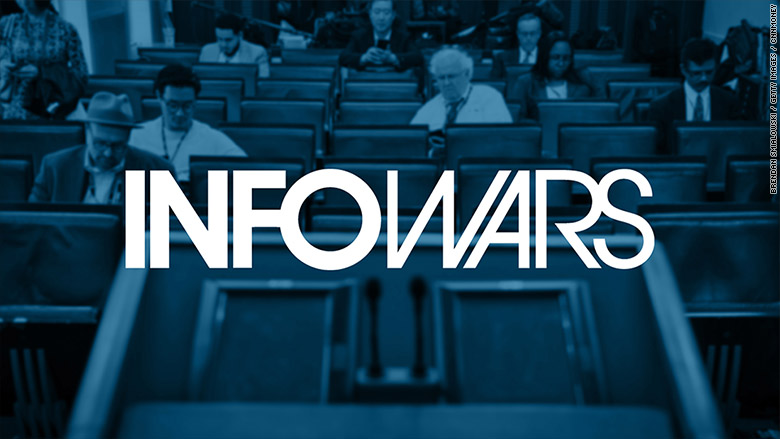
InfoWars is the fringe right-wing outlet best known for spreading 9/11 Truther theories, the scurrilous idea that the massacre at Sandy Hook was a hoax, and a founder who has ranted about malevolent forces conspiring to put things in the water to "turn the freaking frogs gay."
On Monday, it got a White House press pass.
On top of that, the InfoWars reporter who got the pass was Jerome Corsi, one of the chief forces behind the utterly untrue idea, rooted in racism, that Barack Obama was born in Kenya and ineligible to be president.
There will be some people who will tell you it's a bad thing that InfoWars and Corsi got this pass, that this is a pernicious move by the Trump White House and you should be upset about it. They're wrong. It's fine -- a good thing, even.
It's important, first off, to understand that the White House Press Briefing Room is not some sacrosanct space, restricted only to the best reporters from the most prestigious outlets.
Though there are somewhat stricter standards for those with permanent "hard" passes, almost anyone can get a temporary day pass (which is the kind Corsi appears to have obtained) allowing them into the room, and then get another of those passes and another and so on indefinitely. There's a long history of reporters coming in from out of left field, representing small or even possibly non-existent outlets. Some of them have been regular presences in White House briefings for years.
This laissez faire attitude regarding who is given access to the briefing room -- everyone who can make some sort of claim to being a journalist and who isn't a security risk -- is the right one. It's easy to say that the White House could make the obvious judgment call that InfoWars is not a credible source of news, but it's also very easy to imagine how a White House asked to exercise that kind of power could quickly come to abuse it.
Related: Infowars taps Trump-friendly birther to lead Washington coverage
The Trump White House regularly derides legitimate outlets as "fake news" for the offense of publishing absolutely true news that happens to paint the administration in a bad light. If we ask them to keep InfoWars out of the briefing room, what's to stop them from saying, as President Trump once did to a CNN reporter at a press conference, "You are fake news," and then adding, "And you're banned from the briefing room because of it" -- and aiming those words not at InfoWars, but at CNN or the New York Times?
They've done something like that before, freezing CNN, the New York Times, the Los Angeles Times, Politico, BuzzFeed, the BBC and the Guardian out of a meeting in Press Secretary Sean Spicer's office in February.
And it's not like the Trump administration is the only one that has feuded with members of the press, or behaved badly towards them; the Obama administration treated Fox News poorly at times, for example.
People worried about InfoWars and other fringe pro-Trump outlets and reporters being in the briefing room have suggested that there's a possibility that Spicer could call on them either at the expense of more credible outlets, or in order to get a break from a tough line of questioning. But press secretaries have had reporters to go to for that purpose before, and Spicer doesn't need InfoWars and its ideological allies in the room for that. If anything, going to them would only make the ploy more obvious.
Besides, when those other fringe pro-Trump outlets and figures have gone to the briefing, they haven't for the most been all that helpful to Spicer. Perhaps not surprisingly, given the trolling game they're playing, they've been loud about announcing their presence but relatively quiet once in the room. (Similarly, Corsi's first appearance in the briefing room happened on a day when there was no briefing, because President Trump was on his first international trip.)
Plus, there can be some value to having reporters from the fringe in the briefing.
In the 1980s, people were dying of AIDS while the Reagan White House did nothing. No one asked any questions about it at the briefing until Les Kinsolving, a radio reporter known as a gadfly in the room, spoke up ask about it. The questions were rooted in his opposition to gay rights, but still: he got the White House on the record when no one else would.
If someone like Corsi stumbles accidentally into the same kind of thing, that wouldn't be so bad.


